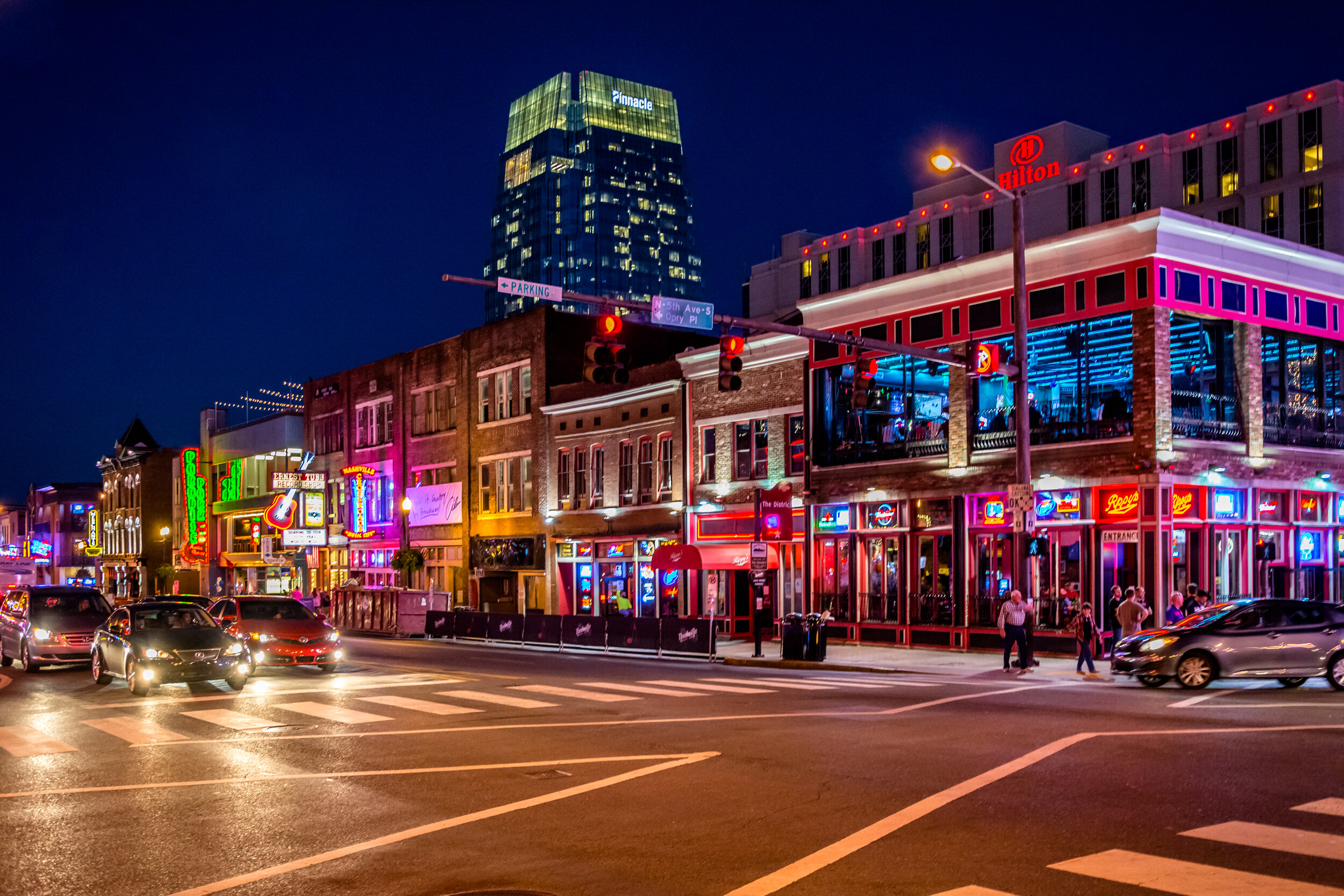What Are Your “Three Wishes” for Your City?
Image of Nashville via Wikimedia Commons.
A genie appears and grants you three wishes to change the urban design of your city. What would you choose? For some in my city of Nashville, their three wishes may be to ban Airbnbs, stop “Tall Skinnies,” legalize tiny homes.
But many of the changes I desire for Nashville could be classified as “error correction.” When you reverse course and abandon a failed strategy you generally have up-front costs. Short-term pain for longterm gain. All three of my wishes have a short-term cost, giving up on unsuccessful policies in order to achieve something greater.
Here are my three wishes:
Wish #1: Slow all neighborhood streets to 20 mph.
It’s all about encouraging walkable streets. Nashville lacks sidewalks and, even with increased funding, most streets realistically won’t have them for another decade. Slowing the speed makes a street immediately safer for cyclists and pedestrians. It’s a budget shortcut allowing roads to act as substitute sidewalks. Pedestrians struck at 20mph have a 93% survival rate. At 40 mph, survival falls to 55%. Lowering the speed from 35 to 20, drivers stand to lose 1 or 2 minutes per day on their commute. I think the tradeoff is well worth it.
To achieve the culture change streets would need design changes such as narrowing and other calming measures. But once 20 mph was established as the cultural norm, the groundwork is set for increased walkability and all its benefits.
Wish #2: Get rid of single-family zoning.
This would easily be the most controversial wish. Single-family zoning prevents housing from being built in sufficient amounts to fill demand. And thus drives up housing costs. It also has a nefarious history of being used to enforce de facto segregation.
Letting go of single-family zoning is less scary than it sounds: Single-family homes are still allowed, but now multiunit buildings are no longer banned. It’s far from a free-for-all, as planning departments are still empowered to prevent out of context buildings. Minneapolis has taken the plunge, eliminating single-family zoning as of January 1, 2020. Nashville, with its insatiable housing demand, should take a similar step. Eliminating single-family zoning allows more units to be built, and would contribute to bringing down the cost of housing.
Wish #3. Move to a form-based code.
Form-based code focuses more on the physical form of new buildings, rather than the use. With a move towards a form-based code, you’re relinquishing control of the uses that fill buildings. In exchange, you’re taking more control of how buildings look and interact with the built environment. Form-based code can contribute to walkability by allowing formerly excluded uses such as grocery and supply stores to exist within walking distance of housing.
Communities need to be able to respond to changes in demand. If zoning restricts the types of use, it prevents the ebbs and flows of demand for housing, restaurants, grocery stores, bars, etc. from reaching a healthy equilibrium. As long as it’s permitted, older buildings are able to serve many different uses over their life-span. A quote from a recent Strong Towns article explains: “In short, a form-based code puts the emphasis on making sure the buildings in a neighborhood are compatible with their surroundings, while letting the mix of actual activities in them be more eclectic.” The community can rest easy knowing whatever gets built will fit the context of the neighborhood in its physical form.
Those are my three wishes for Nashville. Honorable mention to establishing a 100% tax on Airbnbs, eliminating parking minimums, and tearing out all inner-ring highways.
Editor’s Note: What are your three wishes for your city? Let us know in the comments below, or, even better, join the ongoing conversation at the Strong Towns Community Site.
Cover image via Brandi Ibrao on Unsplash.
About the Author
DJ Sullivan is a native of Rochester, New York. He currently lives in Nashville, Tennessee. Reading Walkable City by Jeff Speck in 2013 kindled his interest in urban planning. He is an accountant and enjoys writing and traveling. This article originally appeared on his blog, East Nashville Urban Design.




Outdated zoning laws are holding cities back, restricting housing options and stalling economic growth. That’s why Cincinnati is trying something different.